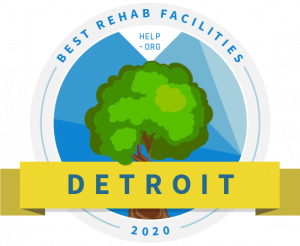Time To Erase The Box
One thing common to you and I is that we are not without sin. Another thing is that we’ve made a big mistake or two in our lives.
Guess who else shares in our sinning and making mistakes. Of course, our neighbors, relatives and friends who have served time in public and private prisons across our great country.
So Painful
My line of work has enabled me to see firsthand how male and female ex-offenders struggle excruciatingly to secure stable jobs and decent housing as well as reunite with their loved ones and reintegrate with the larger society. They face discrimination everywhere – from housing and employment to even congregational worship.
Surprised? Well…some places of worship discriminate against them too – despite their salient sermons about serving the God of first, second and third chances.
At different times and places in life, many of us become victims of (violent or nonviolent) crimes. Many of us live with horrors of violence meted against us and our friends and loved ones. So, it is understandable that many would like to see criminals suffer their penalties for life – in or out of prison.
But while the bible clearly supports punishing offenders, it also has provisions for reprieve, restoration and rehabilitation of repentant offenders.
Society suffers too
Besides, available evidence shows that society also suffers when criminals are made to suffer for life. When employers reject and abandon them, we all – as a society – lose the benefits of their talents and skills. We also lose the benefits that come from their consumption (spending on the goods and services they need and want). After all, consumer spending accounts for about 70 per cent of America’s economic activity.
Employed ex-offenders patronize businesses, from mom and pop coffee shops, restaurants and collision shops to fashion shops, theaters and utility providers. They also pay income and sales tax, among others. In effect, they contribute in stimulating the American economy.
In my 18 years of service at Detroit Rescue Mission Ministries (https://drmm.org), I have seen ex-offenders that are truly smart and resourceful; ex-offenders that have become powerful change agents right here in metro Detroit.
The example of Charles
A major highlight of our October 30 Call to Service – Call to Hope event at our banquet hall in midtown Detroit was hearing Charles Knuckles tell his success story. An ex-offender, Charles gained full employment at one of our facilities upon successfully completing our Prisoner Re-entry Program.
Charles calls himself a “miracle,” and he is indeed a miracle. I am happy he is joining the ranks of a number of our frontline staff members who have not allowed their past to hold them hostage for life.
YouTube is awash with videos showing talented musicians, sculptors, chefs, fitness instructors and community advocates who had paid for their crimes in prison. They are now doing positive things in the community to prove that being an ex-offender is not synonymous with laziness or stupidity.
Ex-offenders are not sub-human. And they desire good things (including dignity of labor) for themselves and their loved ones – just as the rest of us.
It’s true that some entrepreneurial ex-offenders have scaled the hurdles and become employers of labor, but many ex-offenders are not and will not become entrepreneurs. Even among non-felons, the number of those seeking or providing paid labor far exceeds that of employers.
Over to you
Imagine then what would happen if government gives tax incentives to organizations that empower and employ ex-offenders. Everyone wins!
So, join me in calling on federal, state and local governments to join hands with small and big employers to erase the tiny job application form box that closes the door against ex-offenders who really want to work.
Know how to encourage employers near you to join the Erase The Box movement? Please, share in the comment section below. Thank you!







